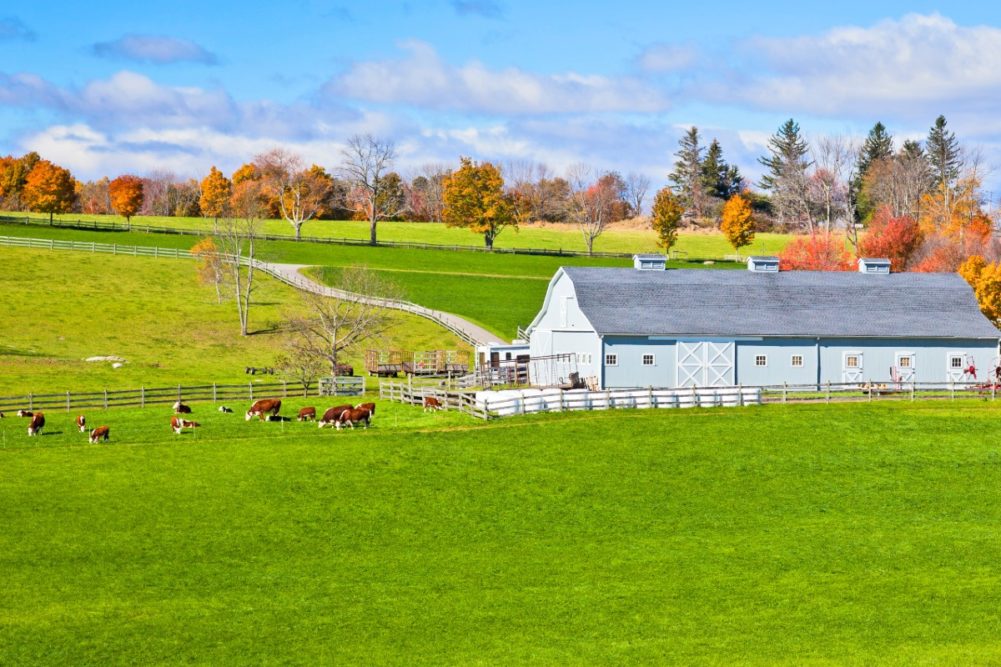WASHINGTON – A Dairy Farmers of America project was among the 70 selected for the first pool of the Partnerships for Climate-Smart Commodities, a program that the US Department of Agriculture announced on Sept. 14 will be backed initially with an investment of up to $2.8 billion.
The DFA’s pilot project, which could receive up to $45 million, involves scaling methane emissions reductions and soil carbon sequestration, as well as developing and marketing climate-smart, low-carbon dairy products.
Per the details of the cooperative’s plan, DFA wants to use its business model to ensure “collective financial benefits are captured at the farm, creating a compelling opportunity to establish a powerful self-sustaining circular economy model benefiting US agriculture, including underserved producers.”
"We're thrilled to receive a Partnerships for Climate-Smart Commodities grant from USDA and appreciate their support for accelerating adoption of innovative, sustainable agricultural practices on our member farms, as well as developing and marketing low-carbon dairy products to meet growing consumer demand," said Kevin O'Donnell, senior vice president of sustainability at DFA. "Given eco-efficiency gains and other leadership to date, we know that dairy is part of the solution to climate change. These funds will allow DFA to build on this foundation, using our cooperative business model to ensure benefits are captured at our member farms. This will allow us an opportunity to establish a more circular economy where we can increase crop resilience in dairy production, innovate more widespread climate and related product solutions faster, and better position us to continue providing sustainable nutrition to families around the world."
DFA listed several partners on the pilot project: Dairy One Cooperative, Inc.; MyFarm, LLC; Dairy Nutrition Management and Consulting, LLC; Nestlé; Mars; Unilever; Barry Callebaut; Dairy Management Inc.; US Dairy Export Council; National Milk Producers Federation; Global Dairy Platform; Innovation Center for US Dairy; CoBank; and AGPROfessionals.
The USDA shared that applicants proposed more than 450 projects for the first funding pool, and the projects looked so promising that the USDA ultimately chose to increase its investment in the program. Agriculture Secretary Tom Vilsack announced earlier this year that the investment would be $1 billion. The USDA now expects that figure to end up being more than $3 billion.
The pilot projects for the 70 selected in the first pool will work with the USDA, which will finalize each project’s scope and funding level in the months ahead. Additionally, projects for the second funding pool will be announced later in the year.
“There is strong and growing interest in the private sector and among consumers for food that is grown in a climate-friendly way,” Vilsack said. “Through today’s announcement of initial selections for the Partnerships for Climate-Smart Commodities, USDA is delivering on our promise to build and expand these market opportunities for American agriculture and be global leaders in climate-smart agricultural production. This effort will increase the competitive advantage of US agriculture both domestically and internationally, build wealth that stays in rural communities and support a diverse range of producers and operation types.”
The USDA stated it expects the pilot projects to expand markets for climate-smart commodities, as well as leverage the benefits of producing those commodities and provide “direct, meaningful benefits to production agriculture, including for small and underserved producers.”
The full list of 70 projects selected for the initial round of the Partnerships for Climate-Smart Commodities can be found online at the USDA’s website.
Funding for the pilot projects will come from the USDA’s Commodity Credit Corporation in two pools. The USDA shared that among the 70 projects already selected, proposals sought funds ranging from $5-$100 million.
Each project can last as long as five years. The USDA stated each project is expected to:
• Provide technical and financial assistance to producers to implement climate-smart production practices on a voluntary basis on working lands.
• Pilot innovative and cost-effective methods for quantification, monitoring, reporting and verification of greenhouse gas benefits.
• Develop markets and promote the resulting climate-smart commodities.

